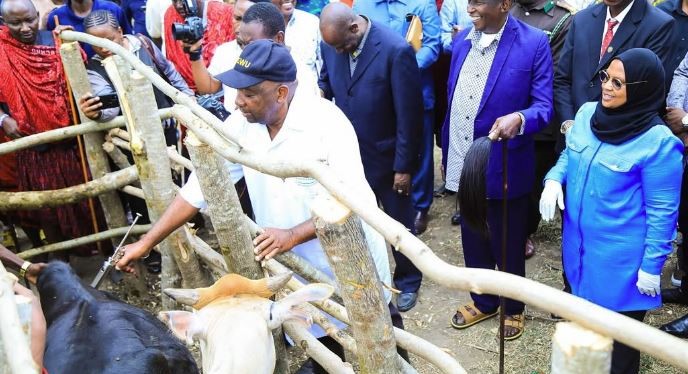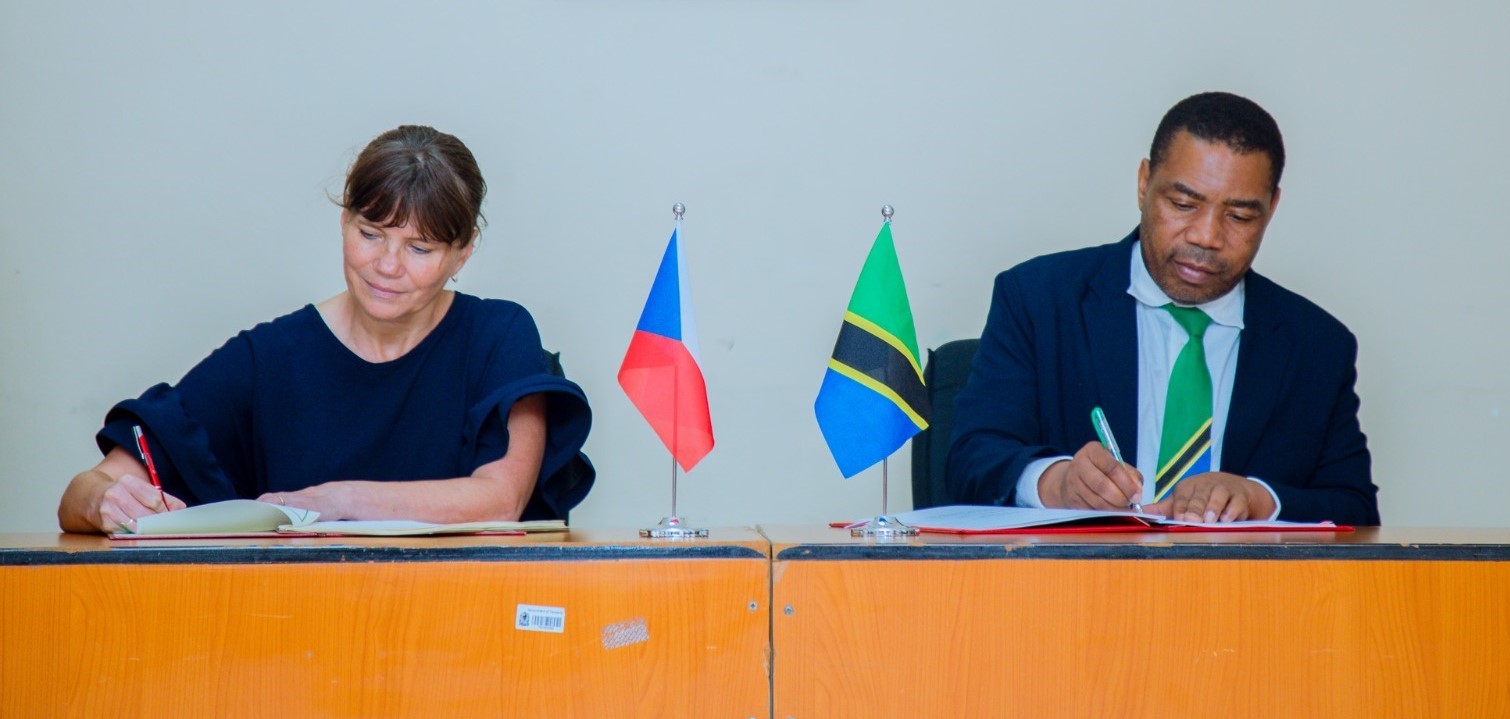Dodoma. Nearly a month since the launch of Tanzania’s ambitious livestock vaccination and identification campaign, implementation is now in full swing across the country, with authorities optimistic about long-term gains despite encountering early logistical challenges.
Launched on June 16, 2025 in Bariadi, Simiyu Region, the five-year initiative aims to vaccinate and electronically tag over 76 million animals nationwide.
Backed by a budget of Sh216 billion, the campaign is central to government efforts to bolster livestock health, improve traceability, and expand access to regional and global markets.
As of early July, regions such as Kigoma, Arusha, and Kilimanjaro have reported notable progress.
In Kigoma Region, over 300,000 animals have been vaccinated, while in Kilimanjaro, more than 1,300 animals were inoculated within the first few weeks.
In Ngorongoro District, local authorities have launched mobilisation drives to ensure pastoralist communities actively participate.
The vaccination targets include Contagious Bovine Pleuropneumonia (CBPP), Peste des Petits Ruminants (PPR), Newcastle Disease, Fowl Pox, and Avian Influenza, all of which have contributed significantly to livestock mortality and trade restrictions over the years.
“This campaign is about securing the future of livestock farming in Tanzania. Healthy animals mean improved livelihoods, better food security, and expanded trade opportunities,” said the minister for Livestock and Fisheries, Dr Ashatu Kijaji.
Speaking during a campaign monitoring visit in Mvomero District, Morogoro Region on July 10, 2025, Dr Kijaji said the government’s long-term objective is to eradicate CBPP by 2030.
She described the initiative as a catalyst for structural transformation in Tanzania’s livestock sector.
She noted that the campaign is already reversing a longstanding trend whereby herders would smuggle livestock into neighbouring countries in search of markets certified by the World Organisation for Animal Health (WOAH)—a certification Tanzania itself has historically struggled to meet due to low vaccination coverage and traceability gaps.
“Now, with just the announcement of this campaign, international markets are already expressing interest in our livestock and related products,” Dr Kijaji said.
Vaccinated animals are now being tagged with electronic ear tags, enhancing traceability and positioning Tanzania to meet export requirements to markets in Europe, Asia and the Middle East.
To encourage participation, vaccination fees have been subsidised: cattle are charged Sh500, goats and sheep Sh300, while poultry vaccinations remain free of charge.
The government has also deployed 3,540 newly graduated veterinary professionals and invested in 700 motorcycles and 4,500 digital tablets to aid mobile outreach and data collection.
While enthusiasm is high in many areas, the rollout has not been without its difficulties.
Veterinary teams in remote zones face limited cold storage capacity, rough terrain, and resistance in communities where previous vaccination campaigns were irregular.
“There’s strong enthusiasm in some places, but also hesitation in others,” said a field officer in Tabora Region.
“More sensitisation is needed, especially in areas where awareness of disease control is low.”
Concerns have also been raised over the durability of the ear tags in harsh grazing environments, though government officials argue that such issues are being monitored and addressed as part of ongoing implementation assessments.
The Tanzania Pastoralists Association has welcomed the initiative, particularly the cost relief measures, which they say will encourage small-scale livestock keepers to vaccinate more animals and improve herd value.
The government is targeting at least 70 percent vaccination coverage within the five-year period, in line with WOAH and WTO guidelines for international certification and disease-free status.
With momentum building, officials believe the campaign could be a turning point for the country’s livestock economy—strengthening food security, reducing disease outbreaks, and unlocking new commercial frontiers.







